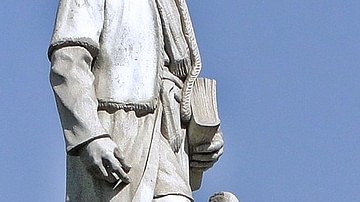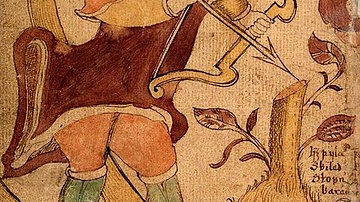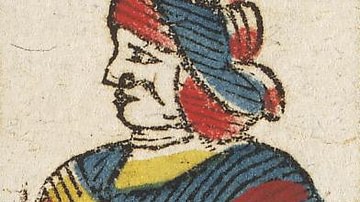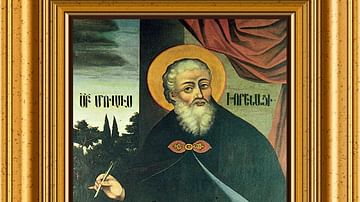Search
Search Results

Definition
Easter
Easter is the Christian holiday that celebrates the resurrection of Jesus of Nazareth three days after he died from crucifixion by the Roman magistrate Pontius Pilate (c. 30 CE). Easter Sunday is the culmination of the week-long events that...

Definition
Ise Grand Shrine
The Ise Grand Shrine or Ise Jingu, located in the heart of a sacred forest in the Mie Prefecture of Japan, is the most important Shinto shrine in the country and is dedicated to the sun goddess Amaterasu with a separate shrine dedicated to...

Definition
Ferdowsi
Abolqasem Ferdowsi (l. c. 940-1020 CE, also given as Abul-Qasem Ferdowsi Tusi, Firdawsi, Firdausi) is the author of the Shahnameh (The Persian Book of Kings), one of the greatest works of world literature and the national epic of Iran. He...

Definition
Cerdic
Cerdic of Wessex (r. 519-534) was King of the West Saxons and the founder of Wessex. His influence was so profound that later genealogies of the English monarchy would claim that all the sovereigns of Britain, save for Canute, Hardecanute...

Definition
Ull
Ull (also known as Ullr), with his bow and skis, is such an elusive presence in Norse mythology that no conclusive remarks can be made about him. The 13th-century Icelandic author Snorri describes him only briefly in his Prose Edda, and he...

Definition
Frodi
Frodi (Old Icelandic: Fróði) is the name of legendary Danish kings in Norse mythology. There is a whole range of kings bearing the same name, pointing to fascinating traditions in both Old Icelandic and continental Germanic storytelling...

Definition
Flann Sinna
Flann Sinna (r. 879-916 CE) was a High King of Ireland from the Kingdom of Mide (Meath) and a member of the Clann Cholmain, a branch of the Southern Ui Neill dynasty. His name is pronounced “Flahn Shinna” and means “Flann of the Shannon”...

Definition
Movses Khorenatsi
Movses Khorenatsi (Moses of Khoren) was a 5th-century CE Armenian historian whose work the History of the Armenians has earned him the title of the “father of Armenian history”. Drawing on ancient sources and ambitiously covering the history...

Definition
Wonhyo
Wonhyo (l. 617-686 CE) was a Korean Buddhist philosopher whose works impacted a wide array of later philosophers and writers through his teaching that one’s interpretation of the world created one’s reality. He is highly regarded as the greatest...

Article
The Temple of Hatshepsut
Among the duties of any Egyptian monarch was the construction of monumental building projects to honor the gods and preserve the memory of their reigns for eternity. These building projects were not just some grandiose gesture on the part...